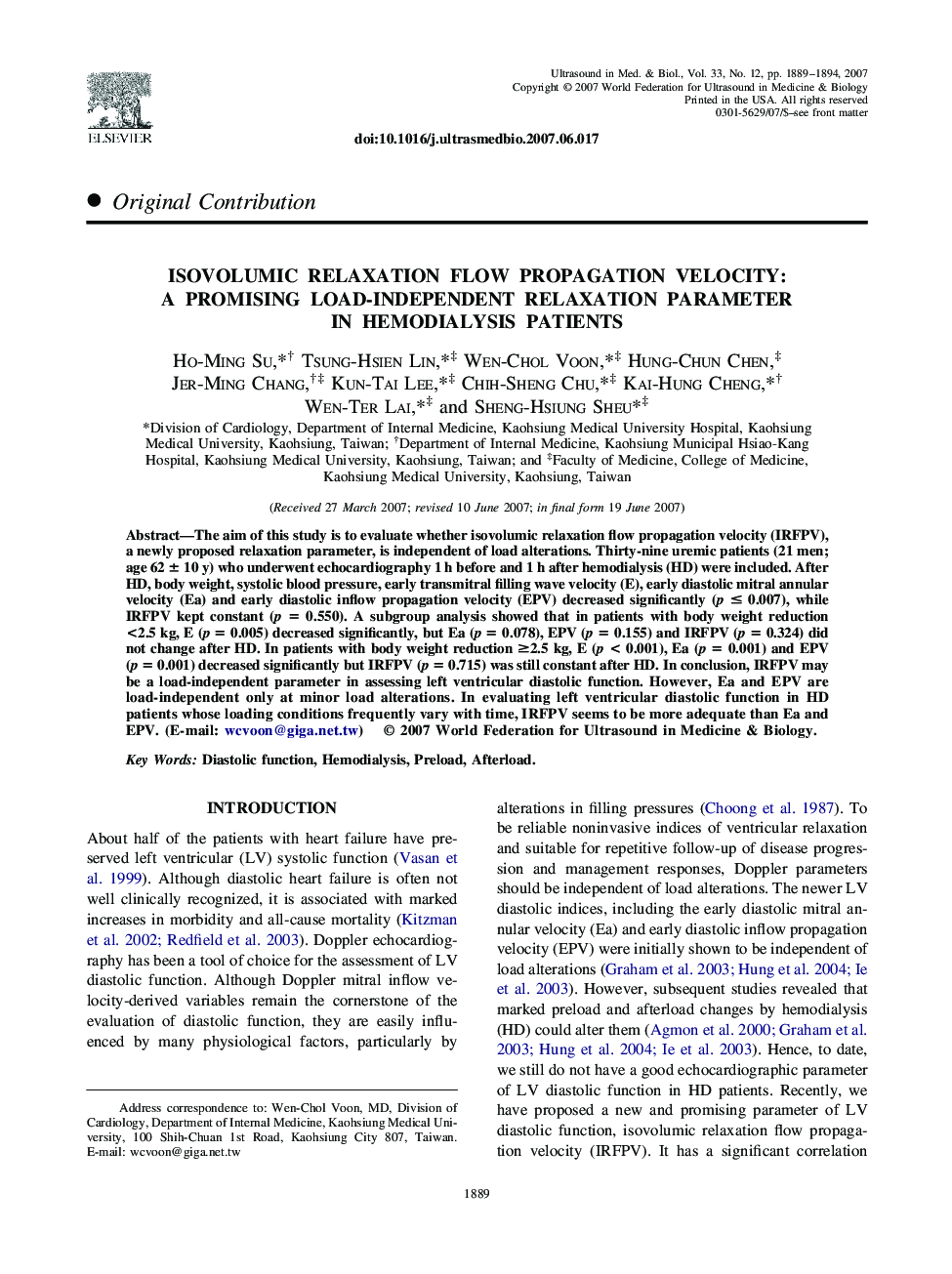| Article ID | Journal | Published Year | Pages | File Type |
|---|---|---|---|---|
| 1762045 | Ultrasound in Medicine & Biology | 2007 | 6 Pages |
Abstract
The aim of this study is to evaluate whether isovolumic relaxation flow propagation velocity (IRFPV), a newly proposed relaxation parameter, is independent of load alterations. Thirty-nine uremic patients (21 men; age 62 ± 10 y) who underwent echocardiography 1 h before and 1 h after hemodialysis (HD) were included. After HD, body weight, systolic blood pressure, early transmitral filling wave velocity (E), early diastolic mitral annular velocity (Ea) and early diastolic inflow propagation velocity (EPV) decreased significantly (p ⤠0.007), while IRFPV kept constant (p = 0.550). A subgroup analysis showed that in patients with body weight reduction <2.5 kg, E (p = 0.005) decreased significantly, but Ea (p = 0.078), EPV (p = 0.155) and IRFPV (p = 0.324) did not change after HD. In patients with body weight reduction â¥2.5 kg, E (p < 0.001), Ea (p = 0.001) and EPV (p = 0.001) decreased significantly but IRFPV (p = 0.715) was still constant after HD. In conclusion, IRFPV may be a load-independent parameter in assessing left ventricular diastolic function. However, Ea and EPV are load-independent only at minor load alterations. In evaluating left ventricular diastolic function in HD patients whose loading conditions frequently vary with time, IRFPV seems to be more adequate than Ea and EPV. (E-mail: wcvoon@giga.net.tw)
Related Topics
Physical Sciences and Engineering
Physics and Astronomy
Acoustics and Ultrasonics
Authors
Ho-Ming Su, Tsung-Hsien Lin, Wen-Chol Voon, Hung-Chun Chen, Jer-Ming Chang, Kun-Tai Lee, Chih-Sheng Chu, Kai-Hung Cheng, Wen-Ter Lai, Sheng-Hsiung Sheu,
